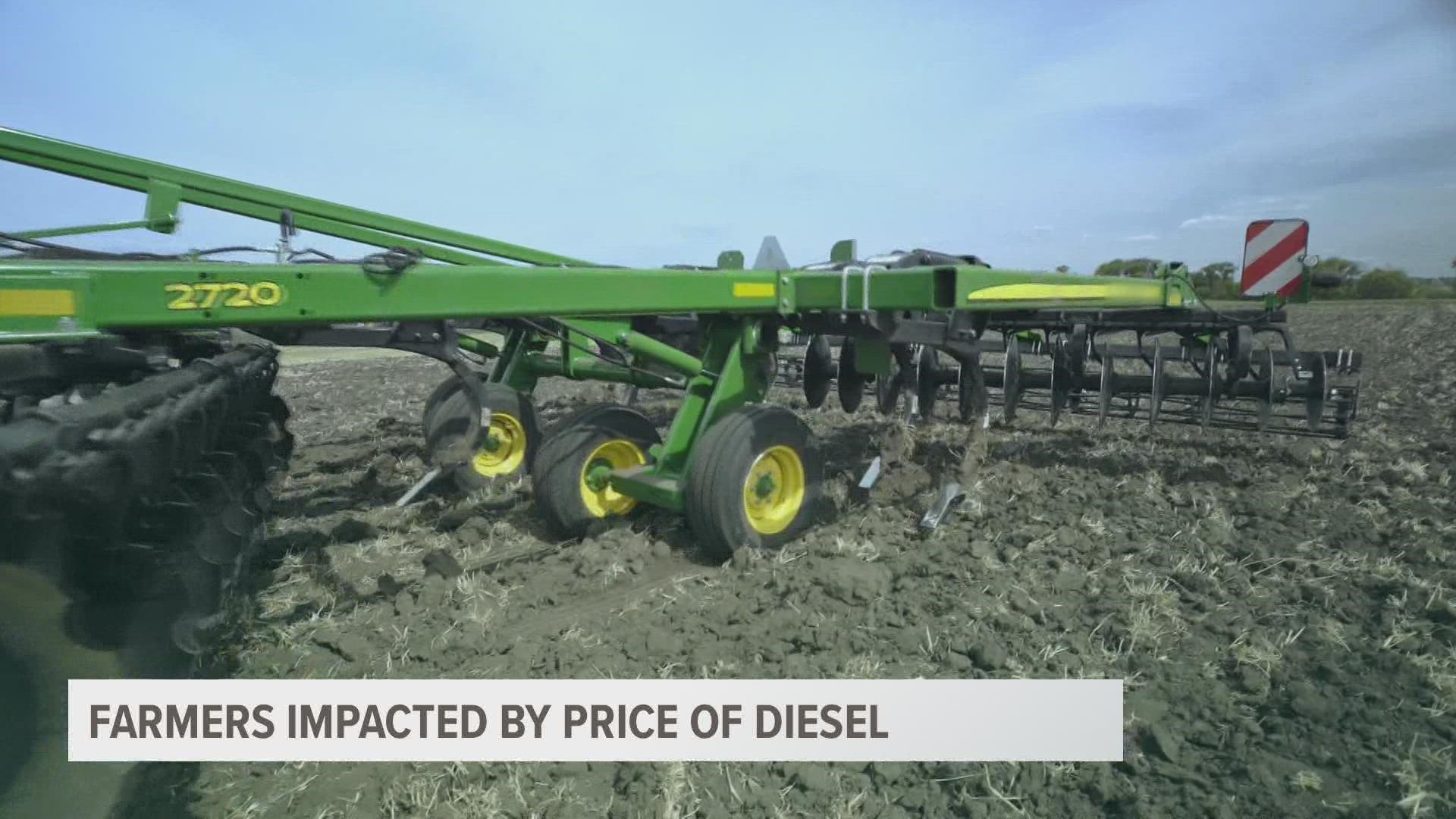OTTAWA COUNTY, Mich. — Ottawa County's agriculture is an essential player in the state's economy, with more than $500 million in products sold each year, providing more than 9,000 jobs to the community. It is also the fourth most agriculturally diverse county in the state, in terms of products that are produced.
But the conflict in Ukraine and the subsequent economic challenges are now hitting local farmers hard.
"Farmers have all been through tough times," said Theresa Sisung, the Industry Relations Specialist with the Michigan Farm Bureau, "but it is still incredibly hard, especially when they had so much uncertainty with the pandemic, and now another issue causing uncertainty."
It's causing stressors for farmers like Rex Schultz, who owns Heritage Blueberry Farm in Bangor and works for True Blue Farms in Grand Junction. He is also the the president of the Michigan Blueberry Advisory Committee.
"Our fuel costs this year have doubled," Schultz said, "and it's quite a challenge for all farmers no matter what they're growing."
Farmers use large equipment on their fields, which require huge amounts of fuel. Sisung said data shows farmers could spend anywhere from six to ten dollars more per acre just to fill up on diesel.
"Imagine the person who's now having to pay an extra two dollars a gallon for something that they have to use thousands of gallons of maybe even in the span of just a week," she said, "and that's really what makes or breaks their livelihood."
"We have to move our product from fields into processing plants, so that all becomes affected," Schultz added. "Plus then we have to ship it, and we don't even have a clue what the prices for shipping are going to be this year."
The cost of fuel isn't the only thing that's hurting local farmers.
"We've seen fertilizer prices increase," Sisung said, "which were already high and had been going up for the last year and a half."
"We feel that increase in the products and supplies that we get from our fertilizer companies, plus all of our pesticides, too," said Schultz. "And along with that, we now have added costs to our packaging supplies, corrugated cardboard and the plastics that will be used to sell our blueberries."
Sisung said that in general, the supply chain challenges have really had a huge impact on trying to move famers' products across the country, as well as around the globe.
So how will all of this affect growing season as it's just around the corner? Our expert says unfortunately, it's really just a waiting game.
"We won't really know what the full effect is until it comes time to put the products out in the field," Sisung said.
►Make it easy to keep up to date with more stories like this. Download the 13 ON YOUR SIDE app now.
Have a news tip? Email news@13onyourside.com, visit our Facebook page or Twitter. Subscribe to our YouTube channel.

